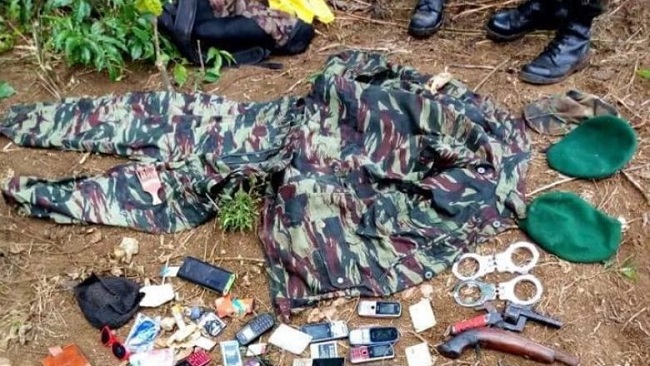Cameroon Celebrates 47th National Unity Day In Blood And Violence
The West African nation of Cameroon has once again celebrated its National Unity Day on 20 May 2019 amidst violence and bloodshed in some areas of the country. A conflict of language, culture, and resources, especially in the English speaking regions, is tearing the country apart.
The celebrations organized for the 47th time in the country’s history took place without a hitch in the nation’s capital, Yaoundé, under the careful watch of the presidential couple, Paul and Chantal Biya. However, violence and bloodshed significantly marred the celebrations in other parts of the country.
The two frontline opposition parties, the Cameroon Renaissance Movement and the Social Democratic Front, boycotted the events in solidarity with the lives lost in the English speaking regions. These two parties argued that there cannot be any celebration of “unity” while the country is being torn apart, and the government is not showing sufficient good faith in pacifically managing the conflict.
In the two English-speaking regions of the country, the only towns that were able to stage a semblance of march pass, which was void of the usual fanfare and jubilation, were Bamenda, Buea, Kumba, and Limbe. This resulted from calls to boycott the event by Anglophone separatists under the banner of Ambazonia interim government. In most places in the Anglophone Northwest and South regions, march pass, which used to last for over three hours was reduced to less than 30 minutes mostly staged by the military.
In the Northwest chief town of Bamenda, the day started with gun battles between Ambazonia fighters and government soldiers resulting in casualties on both sides. In the locality of Muyuka, soldiers shot and killed a four-month-old baby after breaking into a house. Most areas of the two restive regions experienced a similar scenario. Meanwhile, 20 May celebrations were going on in the eight French speaking regions of the country.
Cameroon has been facing a separatist movement in its English-speaking regions since 2016. The English-speaking population occupies two regions out of 10, and accounts for about 20 percent of the total population. The movement, which was originally largely peaceful, turned violent after soldiers opened fire in September and October 2017 on peaceful protesters demanding more rights for the minority English-speaking population. Since 2017, civilians have taken up arms to confront regular government soldiers. These armed groups say they are fighting for the creation of a separate state comprising the two English speaking regions, under the banner of the Federal Republic of Ambazonia.
So far, the international community has urged the Biya regime to open negotiations with the leaders of Ambazonia, most of whom have been jailed in Yaoundé, while others are in exile. However, the Biya regime seems to believe in the use of force, which at the moment is causing more harm than good. In its latest report, Human Rights Watch reported that more than 1850 persons have been killed, more than half a million internally displaced, and tens of thousands seeking refuge in neighbouring Nigeria.
It should be recalled that French and English Cameroon came together under a federal system in 1961 to form the Federal Republic of Cameroon. This system gave more autonomy to the regions. However, on May 20, 1972, the pro-French government under President Ahidjo decided to abolish the federal system in favour of a centralized unitary system, which meant that Anglophones lost their autonomy. Since then, Anglophones have been complaining of marginalization and second-class status from successive French governments.
Culled from Organisation For World Peace





